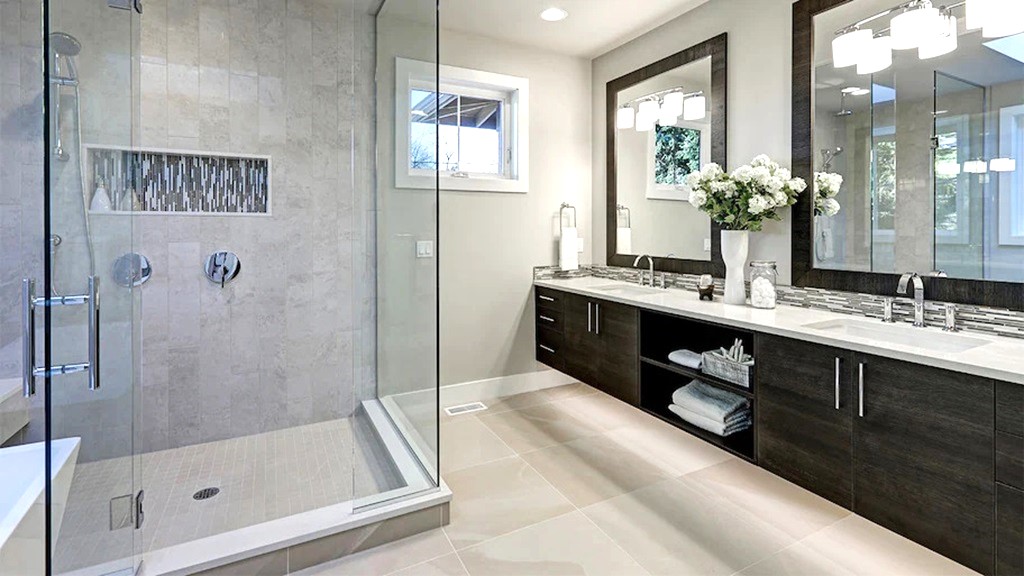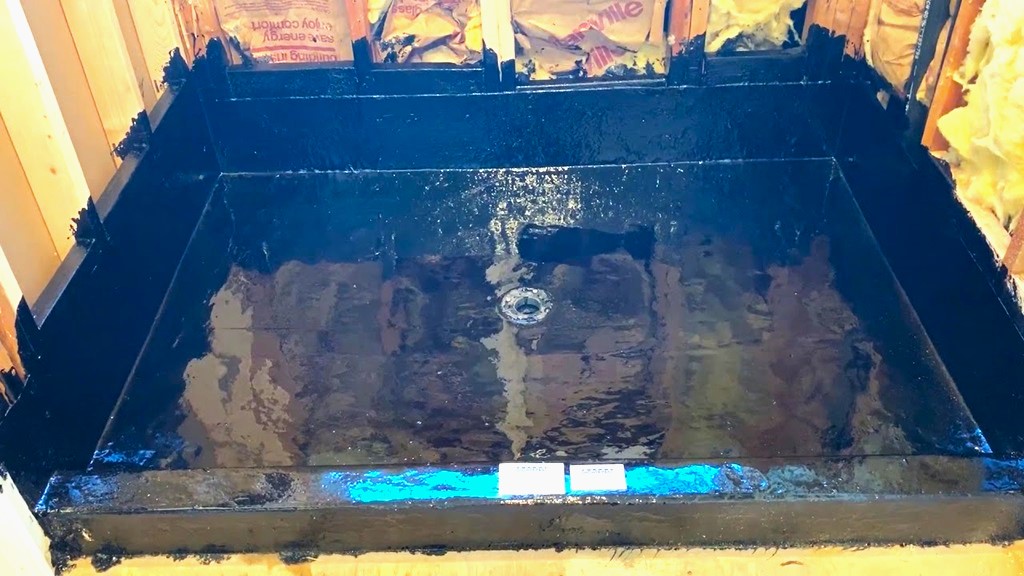If you’re planning a bathroom renovation or building a new shower, the term “hot mop shower pan” might leave you scratching your head. Don’t worry – hot mopping, while less common than newer methods, remains a reliable and time-tested way to create a waterproof barrier in your shower, ensuring water stays where it belongs and doesn’t damage your home.
What is a Hot Mop Shower Pan?
At its core, a hot mop shower pan is a waterproofing system applied underneath your shower floor.
Here’s how it works:
- Pre-Slope: First, a sloped layer of mortar, called a pre-slope, is created on your subfloor. This directs any water that gets through the tile toward the drain.
- Hot Asphalt: Molten asphalt (tar) is heated to very high temperatures and mopped onto the pre-slope in a thick layer.
- Felt Paper: Reinforcing layers of felt paper are embedded into the hot asphalt.
- Repeat: The mopping and felt layering process is repeated several times, typically three, to build up a thick, seamless membrane.
- Final Layer: A final coat of asphalt creates a smooth top surface.
The entire process creates a robust and waterproof barrier between your subfloor and your tiles, preventing water damage.
Why Choose a Hot Mop?
- Longevity: When properly installed, hot mop shower pans can last for decades, sometimes even outlasting the tiles above them.
- Durability: The thick asphalt and felt layers create exceptional resistance to punctures and cracks.
- Customizability: Hot mops can be tailored to unique shower shapes and sizes, even curved floors.
But Isn’t This Old-Fashioned?
- Newer Options: Yes, there are newer waterproofing methods like PVC liners or liquid membranes. These tend to be easier to install, particularly for DIYers.
- Messy and Laborious: Hot mopping is a hot, messy, and potentially hazardous process due to the heated asphalt, so it’s best left to professionals.
- Regional Differences: Hot mopping remains common in certain areas, particularly in the Western United States, but may be less available elsewhere.
What About the Cost?
Hot mop installation tends to be more expensive than newer methods due to the labor involved and the need for specialized contractors. However, the long-term durability means you might actually save money by minimizing the risk of costly repairs in the future.
Related: High-tech Additions for a Modern Luxury Bathroom
Factors to Consider Before Opting for a Hot Mop
- Professional Availability: Can you find an experienced hot mop installer in your area? If not, another method may be more practical.
- Structural Support: Older homes might not have a subfloor strong enough to safely support the weight of a hot mop system.
- Renovations vs. New Builds: Hot mops are often a good choice for new builds but can be trickier to add to an existing bathroom due to the height they can add.
- Environmental Concerns: Some are concerned with the fumes associated with hot asphalt and opt for a greener alternative.
Making an Informed Decision
Choosing the right shower pan waterproofing system often depends on your specific circumstances and priorities.
Let’s break down when a hot mop might be ideal:
- You value maximum longevity and plan to keep your shower for many years
- You have access to an experienced hot mop installer in your region
- You want the best protection against leaks, regardless of price
Additional Notes
- A hot mop shower pan needs a drain designed specifically for this system. You cannot use a standard tile-in drain.
- Hot mop professionals will often waterproof some distance up the shower walls as well, adding another layer of protection.
In Conclusion
While not the only choice, hot mop shower pans are a proven and highly effective way to keep your bathroom dry. If you prioritize a virtually bulletproof waterproofing system and have the right installer available, a hot mop offers peace of mind, knowing your bathroom is built to last.





Average Rating